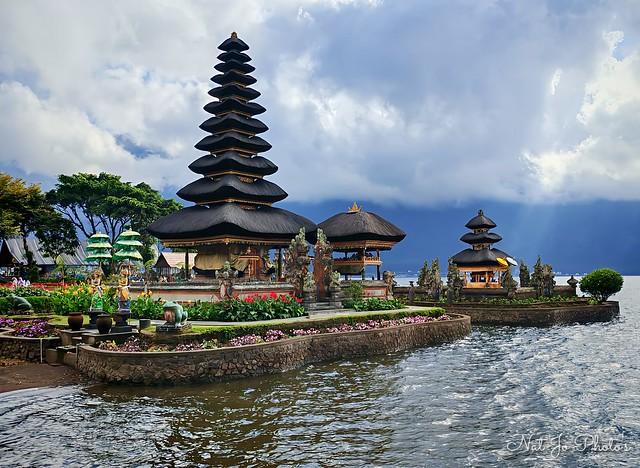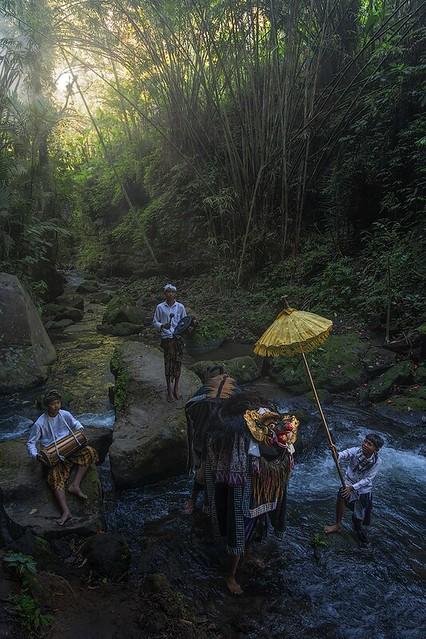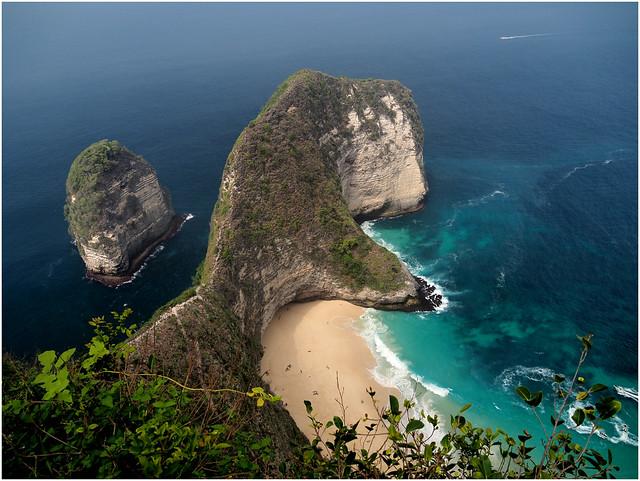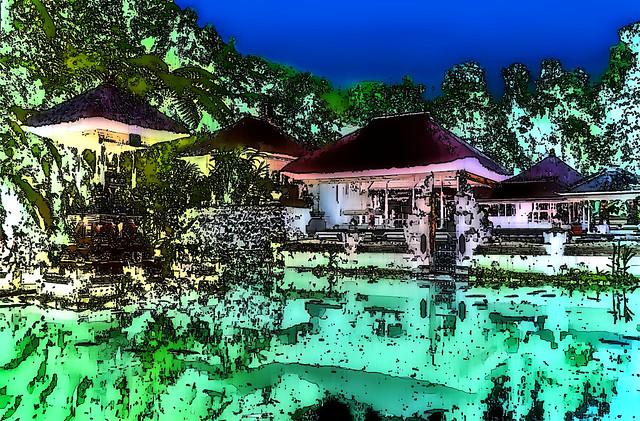Bali
Overview
Bali is often referred to as the "Island of the Gods," a name that reflects its rich spiritual heritage and stunning natural beauty. The island is part of Indonesia, situated in the westernmost end of the Lesser Sunda Islands, and is renowned for its unique culture, which is a harmonious blend of traditional Balinese Hindu beliefs and local customs. Here, the ancient and the modern coexist, offering travelers a unique atmosphere that is both serene and vibrant.
Culture and Religion
Bali's culture is deeply rooted in its Hindu traditions, which are distinct from the predominantly Muslim practices found in the rest of Indonesia. Temples, known as "pura," are scattered across the island and serve as focal points for community and spiritual life. The most famous of these is Uluwatu Temple, perched dramatically on a cliff overlooking the Indian Ocean, offering breathtaking sunset views. Festivals, such as Nyepi (the Day of Silence), showcase the island's vibrant ceremonies, where locals engage in elaborate rituals, processions, and offerings that reflect their devotion and connection to the divine.
Atmosphere and Natural Beauty
Bali's atmosphere is a tapestry of lush landscapes, from terraced rice paddies to volcanic mountains. The Ubud region is particularly famous for its picturesque rice fields and artistic community. Here, travelers can explore art galleries, craft markets, and wellness retreats, making it a hub for those seeking both creativity and tranquility. The island's beaches, such as Kuta and Seminyak, are popular among surfers and sunbathers alike, while the more secluded Amed and Nusa Dua offer peaceful escapes with opportunities for snorkeling and diving.
Historical Significance
Bali has a rich history that dates back centuries, with influences from Indian and Chinese traders, as well as Dutch colonialism. The Goa Gajah (Elephant Cave) and Tampaksiring are significant archaeological sites that illustrate the island's historical depth and its connections to ancient Hinduism. The Royal Palace of Ubud is another important landmark, showcasing traditional Balinese architecture and serving as a cultural hub with regular dance performances that reflect the island's storytelling traditions.
Local Characteristics
The warmth of the Balinese people is one of the island's defining characteristics. Known for their hospitality, locals often greet visitors with a smile and a friendly "Selamat datang" (welcome). Street markets, such as those in Denpasar, offer a sensory overload of colors and scents, showcasing local handicrafts, textiles, and delicious street food. Be sure to try traditional dishes such as Nasi Goreng (fried rice) and Sate Lilit (minced meat satay) for an authentic taste of Balinese cuisine.
Bali is also a center for wellness and spirituality, with numerous yoga retreats and wellness centers scattered across the island. The Yoga Barn in Ubud is particularly popular, offering a variety of classes, workshops, and holistic healing practices. This focus on self-care and mindfulness enhances Bali's serene atmosphere, attracting travelers looking to rejuvenate their body and soul.
Whether you're drawn by its stunning landscapes, rich culture, or the warmth of its people, Bali offers a multifaceted travel experience that captivates and inspires. Each visit reveals new layers of this enchanting island, inviting travelers to explore and connect with its unique essence.
How It Becomes to This
History not available

You May Like
Explore other interesting states in Indonesia
Discover More Area
Delve into more destinations within this state and uncover hidden gems.













